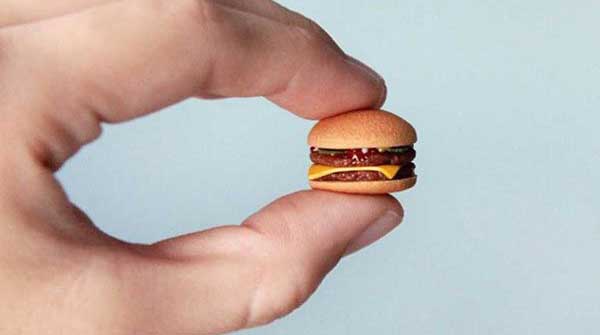Don’t be surprised if “shrinkflation” labels on food products are forced on Canadian grocers by Thanksgiving
 Canadian shoppers are particularly vexed by two issues at the grocery store: volume discounts, which impact seniors and those who live alone, and the increasing trend of “shrinkflation.”
Canadian shoppers are particularly vexed by two issues at the grocery store: volume discounts, which impact seniors and those who live alone, and the increasing trend of “shrinkflation.”
The latter has come under the spotlight over the past year due to substantial price hikes in grocery items. Thankfully, some grocery stores are now taking action.
For the past few weeks, the French supermarket chain Carrefour, the seventh largest in the world, has taken a unique step to tackle the “shrinkflation” issue head-on. It has introduced labels on its store shelves to alert shoppers to the issue. As many now know, shrinkflation involves manufacturers reducing the size of product packaging rather than increasing prices.
Carrefour has begun applying these price warnings to various products, including Lindt chocolates and Lipton iced tea, to pressure leading consumer goods suppliers such as Nestlé, PepsiCo, and Unilever to address this issue in anticipation of upcoming contract negotiations. This pressure is having a cascading effect through the entire food supply chain.
Carrefour has labelled 26 products with notices stating that the product is smaller than before, with most of these reductions occurring within the last 12 months. This situation could potentially unfold in Canada.
In the past year, Canada has witnessed about 20 cases of “shrinkflation” by major food manufacturers, most garnering significant media attention. Minister of Innovation, Science and Industry François-Phillippe Champagne, who met with food manufacturers recently and has pledged to combat food inflation and increase accountability in the food industry, undoubtedly has “shrinkflation” on his radar.
The Carrefour approach is likely being considered to enhance transparency in food pricing in Canada. Champagne has expressed his approval of the Carrefour initiative. Hardly surprising, given its simplicity, ease of implementation, and potential popularity among Canadians who feel deceived and shortchanged. They are an easy target for such measures.
Historically, “shrinkflation” is often employed when input costs rise. The last time we witnessed numerous cases of this was during the financial crisis of 2008. We are currently nearing the end of another cycle and do not expect to see new cases for some time.
However, Carrefour’s primary incentive appears to be driven by its desire to shame manufacturers and to gain leverage at the negotiating table rather than genuinely benefiting consumers. It is worth noting that food manufacturers also produce privately labelled products owned by grocers. Carrefour’s actions have focused solely on major multinationals without disclosing whether some of its own privately labelled products have also decreased in size, which could be seen as deceitful.
The impact of such a measure is likely to be short-lived. Beyond a few weeks, consumers may revert to their old habits. If Canada were to encourage grocers to adopt a similar approach, it should be implemented uniformly across the board.
To go even further, Ottawa needs to abolish the “snack tax.” Many products have shrunk in size in recent years, making them subject to taxation. Champagne should clarify that any food sold in Canada, if not served, should not be taxed, especially food products that are now too small to be considered as snacks. Many Canadians are unaware that this occurs or that it is costing them daily at the grocery store. Ottawa has the means to rectify this situation.
Do not be surprised if the “shrinkflation” labels become a directive for our grocers by Thanksgiving. It is highly unlikely that we will see a windfall tax or government-mandated price controls, as these measures would have adverse economic consequences. Champagne is astute enough to understand the implications of such actions on our food economy.
Instead, the spotlight now shifts to the Competition Bureau, bolstered by Bill C-56. While this bill might have been overshadowed by events like the India situation and Parliament’s honouring a Nazi during Ukrainian President Volodymyr Zelenskyy’s visit, it is precisely the kind of legislation Canadians need. Minister Champagne has accurately read the political landscape surrounding food.
Bolstering the powers of the Competition Bureau is crucial for Canadians, although it will be a protracted process that could span several years. This is why labelling “shrinkflated” products can offer a swift and tangible win both for Champagne and for Canadians.
Dr. Sylvain Charlebois is senior director of the agri-food analytics lab and a professor in food distribution and policy at Dalhousie University.
For interview requests, click here.
The opinions expressed by our columnists and contributors are theirs alone and do not inherently or expressly reflect the views of our publication.
© Troy Media
Troy Media is an editorial content provider to media outlets and its own hosted community news outlets across Canada.


